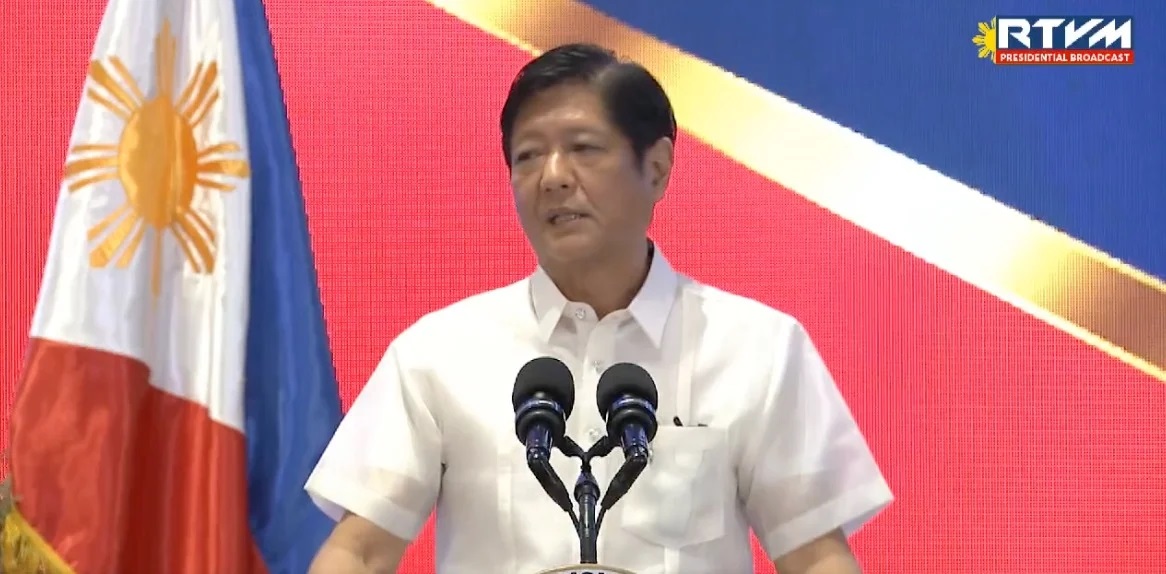
FILE PHOTO: President Bongbong Marcos in one of his speaking engagements.
JAKARTA — A border agreement that the Philippines and Indonesia entered into in 2014 may just spell the difference in finally resolving Manila’s maritime dispute with Beijing in the West Philippine Sea, President Ferdinand Marcos Jr. said Tuesday.
Debuting on the world stage as the Philippines’ 17th head of state, Marcos said he and Indonesian President Joko Widodo discussed ways to peacefully address the overlapping exclusive economic zones (EEZ) of both countries during their bilateral meeting on Monday at the Bogor Presidential Palace.
As Widodo earlier mentioned, he said they agreed to hasten the negotiations on the delimitation of the continental shelf of both countries as stipulated under the United Nations Convention on the Law of the Sea.
“We had talks on that delimitation to establish our baselines because our EEZ overlaps with that of Indonesia, which had caused tension (in the past),” the President said in a press briefing as he concluded his three-day state visit here.
“So I said that could be the template… not only for the issues between Indonesia and the Philippines but of other (countries) that are engaged with delimitation talks,” he said.
He said he told Widodo that the arrangement between their countries may be used as an “example” by other member-states of the Association of Southeast Asian Nations (Asean) in resolving their own maritime disputes.
“That it is something that can actually be done,” the President said.
Asked if the Philippines would use its 2014 border agreement with Indonesia to put an end to the country’s territorial row with China, Marcos said: “I think it is worthwhile to explore (that) at the very least because it is one instance that… we (have already come) to a conclusion.”
“So we should try it now. Hopefully, it works,” he said. “If it doesn’t work, we’ll try something else, but at least we have a beginning point. That’s how I see it.”
During the state visit to Manila of then Indonesian President Susilo Bambang Yudhoyono in May 2014, the two countries inked the sea border agreement after 20 years of negotiations.
READ: PH, Indonesia sign model maritime pact
The accord delineated the maritime boundaries of each country in southern Philippines, particularly over the Mindanao Sea, Celebes Sea, and Philippine Sea.
The territorial row between the Philippines and China should have already been punctuated in 2016 after an arbitral court voided Beijing’s sweeping ownership claims in the South China Sea and West Philippine Sea.
China, however, had stubbornly rejected the Philippines’ historic arbitral victory, which the late President Benigno S. Aquino III doggedly pursued despite China’s vehement objections.
READ: PH wins arbitration case over South China Sea
Besides the Philippine-Indonesia border issue, Marcos said Widodo also discussed the situation in Myanmar, whose military junta leadership had been criticized by many countries for allegedly committing human rights abuses and other atrocities to stifle the political opposition.
“We discussed (about how) Asean should (address this) and we came up with some ideas,” he said.
The proposals in addressing the situation in Myanmar, according to the President, would be brought up in the next meeting of Asean leaders in November.